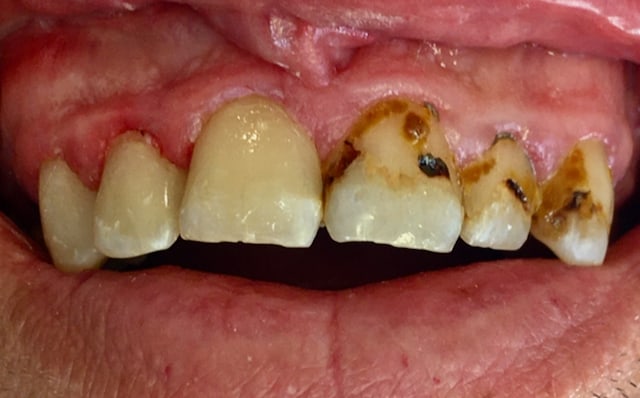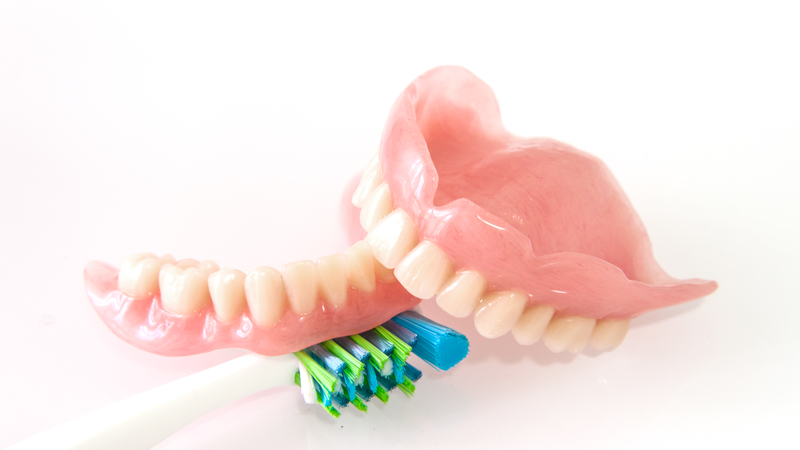Dental Insurance For Seniors -
What's the Best Deal?
Why do we have dental insurance for seniors? How is it any different to dental insurance for any other age group? In what ways are seniors different?
There are two important differences. First, dental insurance for seniors must recognize the fact that seniors are likely to need different types of dental treatment compared to other age groups.
Do you know any seniors who needed orthodontic braces? Or a wisdom tooth removing? Probably not.
Senior citizens are more likely to need dental treatment for gum problems, and things like bridges and dentures. They have different treatment needs.
Second, many senior citizens find it hard to afford full dental coverage, or else only want basic cover. Generally speaking, they are looking for a better deal on their dental insurance. For many seniors, cost is an important issue.
But the overall cost is not just the monthly premiums you pay. You also have to think about things called deductibles, co-pays, co-insurance, annual limits, and much more! There are lots of aspects to keep in mind.
You also need to consider what things you want to be covered for. Or more importantly, what things you do NOT want to be covered for!
Dental Insurance For Seniors
First, let's take a look at the extra costs to be aware of.
Deductibles. This is the money you pay out of your own pocket for a treatment that is covered by your plan, before your insurance pays anything.
The deductible amount is based on a 12 month period, so it starts again every 12 months, and you start from zero. That means that 12 months after your insurance starts, you have to pay the deductible amount again, up front, before your insurance kicks in for the next year.
When looking for a dental insurance plan, you will need to figure out what you can afford to pay each year as a deductible out of your own pocket. This is in addition to the premiums.

Wait, there's more to consider - if you are able to afford a bigger deductible, your monthly premiums will be less. The opposite is also true - if you go for a LOWER deductible, then your monthly premiums will be higher.
Because you have to pay the deducible out of your own pocket before the insurance starts to cover anything, you need to think carefully about how much you can afford.
Next we need to look at co-insurance and co-pays. These are where you and the insurance plan share costs.
Once you have paid your deductible, your insurance starts to kick in. But it doesn't pay 100% from there on. A typical plan will cover from 50% to 80% of the costs remaining after you have paid the deductible. It's important to know what you will have to pay as your part of the remaining costs. If the total cost of a treatment is, say, $1,000, then your insurance may pay UP TO $800, AND YOU HAVE TO PAY THE DIFFERENCE !
The next thing you may run into is an annual limit. This is where the insurance company sets a limit on the total it will actually pay out in a 12 month period. If you reach the annual limit for your insurance after, say, 10 months, then you will have to pay 100% of any costs in the remaining 2 months. Then the annual limit re-sets and starts again for the next 12 months.
About "co-pays" - this is where you pay a fixed amount for a certain procedure, and the insurance pays the rest, whatever that is. For example, you might pay $25 towards a check-up. This is a fixed amount. The insurance pays the rest. You normally benefit from the copay arrangement only after you have paid the deductible amount specified in your policy.
AARP is in the business of giving care and assistance to senior citizens. The dental coverage from AARP is provided by Delta Dental. This is a PPO network which means that members can choose which dentist they want to visit and feel comfortable with.
Discount Dental Plans instead of Dental Insurance for Seniors.
There are also discount dental plans instead of dental insurance for seniors. A discount dental plan can provide a few advantages when compared to dental insurance policies.
Dental discount plans should not be mistaken for insurance. They are NOT insurance. What they ARE is a way of getting a significant discount on all dental treatments. There are several advantages to discount plans as an alternative to dental insurance for seniors:
They are simpler to use.They do not have waiting periods. Your cover starts immediately.They do not charge deductibles, so there are no big up-front payments.There are no annual limits.Discounts are based on a set fee schedule, so your costs are predictable. Discount plans are also flexible, since you can choose a plan that covers the procedures you think you might need.
Some discount plans also cover cosmetic dental procedures, whereas most dental insurance for seniors do not. There are a number of reasons why senior citizens think that a discount plan is their number one choice when looking into for dental insurance for seniors.
I recommend Affordable Plans to readers of this site who are looking for dental insurance.
You can read more about dental plans here.



